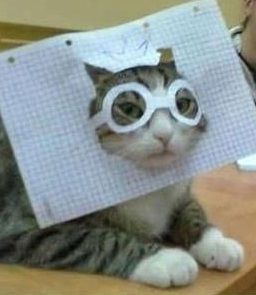
- colrehogan
- Key Master
 Offline
Offline 
- From: Granite City, IL
- Registered: 05-2-2015
- Posts: 612
Backing sheet
I have seen mention of a backing sheet in several posts today. What is the background on the use of the backing sheet and is it still something that should be used today? Is it based on the properties of the individual machine? Is it based on the weight of the paper used?
Smith Premier typewriters are cool!
- skywatcher
- Moderator
 Offline
Offline - From: The Prairies of Alberta
- Registered: 14-3-2013
- Posts: 742
Re: Backing sheet
Hi Colre
Generally a backing sheet is used to extend the life of the platen by working as a shock absorber and lessen the blow of each type bar on the platen. If you look at some of the older typewriter on eBay, some of them have an almost grid pattern on the platen. This is caused by years of typing without a backing sheet and never using the line finder feature if equipped.
A backing sheet also allows the type slug to sink into the copy paper a little deeper thus giving a clearer impression. Myself I like to have the equivalent of about a sheet of 40lb (150g/sq-m) paper on the platen. If I'm typing on 20lb (75g/sq-m) paper, then a 20lb backing sheet is adequate. However if I'm typing on 9lb (34g/sq-m) airmail paper, I prefer a sheet of 28lb (104g/sq-m) or 32lb (120g/sq-m) paper as my backing sheet. Paper with a cotton content of 25% or higher seems to hold up better to repeated use. Hope this gives you something to work with. Happy typing,
Sky
We humans go through many computers in our lives, but in their lives, typewriters go through many of us.
In that way, they’re like violins, like ancestral swords. So I use mine with honor and treat them with respect.
I try to leave them in better condition than I met them. I am not their first user, nor will I be their last.
Frederic S. Durbin. (Typewriter mania and the modern writer)
- KatLondon
- Key Master
 Offline
Offline 
- From: London
- Registered: 11-10-2014
- Posts: 995
Re: Backing sheet
Should be pointed out that if the platen is really hard - which so many are - using more than one sheet of paper also protects your letters themselves; as the Typewriter Man said to me the other day, the constant impact against a hard surface can actually wear away the metal type. Nobody wants that!
- malole
- Inactive Account
 Offline
Offline 
- From: East Anglia, UK
- Registered: 02-6-2014
- Posts: 330
Re: Backing sheet
I'm just wondering if there is anything like a thin rubberised sheet we could use as a backing sheet. Would it be possible?
- Spazmelda
- Key Master
 Offline
Offline 
- From: Ohio
- Registered: 25-2-2015
- Posts: 830
Re: Backing sheet
malole wrote:
I'm just wondering if there is anything like a thin rubberised sheet we could use as a backing sheet. Would it be possible?
Interesting idea! I wonder if something like this would work?
That might be too thick. 1/32" is 0.7something mm.
Last edited by Spazmelda (15-5-2015 06:40:14)
- KatLondon
- Key Master
 Offline
Offline 
- From: London
- Registered: 11-10-2014
- Posts: 995
Re: Backing sheet
Well... I've got typewriters where even two pieces of thick paper is hard to get through the rollers. You'd need the thinnest latex really I'd imagine - but paper has a lot of give in it so it seems to me it is just as good, at that sort of thickness, and you can just replace the sheet when it gets too wrecked.
- The Cabin Boy
- Novice Typer
 Offline
Offline 
- From: Baltimore, Maryland
- Registered: 08-4-2015
- Posts: 36
Re: Backing sheet
I haven't been typing all that long, but I have noticed that using a sheet of blotting paper helps the type impressions look better. I didn't know that hard platens could damage the type faces. That's good to know. Thanks!
Rick
 "I'll wrestle you for that typewriter."
"I'll wrestle you for that typewriter."- Spazmelda
- Key Master
 Offline
Offline 
- From: Ohio
- Registered: 25-2-2015
- Posts: 830
Re: Backing sheet
KatLondon wrote:
Well... I've got typewriters where even two pieces of thick paper is hard to get through the rollers. You'd need the thinnest latex really I'd imagine - but paper has a lot of give in it so it seems to me it is just as good, at that sort of thickness, and you can just replace the sheet when it gets too wrecked.
Same here. Any bit of rubber backing would have to be very thin. I'm not sure how it would roll in either. Paper is probably the most practical choice.
Blotter paper is a cool idea. If I had some laying around I'd give it a try, I do have some thicker multimedia paper, and various types. I may try some of those and see how they work as a backer.
- thetypewriterman
- Key Master
 Offline
Offline - From: Leiston, England
- Registered: 29-5-2013
- Posts: 942
Re: Backing sheet
Just a note that yes using a machine with an age-hardened platen can damage the typeface. The platen eventually gets as hard as a rock - so hard that it actually flattens and deforms the typeface. Of course once that happens, the typewriter is ruined. It does upset me when customers tell me not to replace their age-hardened platens (because it is expensive), they'll 'Just use it as it is' ! If you had a classic car restored, would you drive it around on the wheel rims because you didn't want to pay for a set of tyres ?
- malole
- Inactive Account
 Offline
Offline 
- From: East Anglia, UK
- Registered: 02-6-2014
- Posts: 330
Re: Backing sheet
thetypewriterman wrote:
If you had a classic car restored, would you drive it around on the wheel rims because you didn't want to pay for a set of tyres ?
Nice analogy, and so true.
I think people are reluctant to spend money on a new platen when they have bought the typewriter itself for very little. (Generally I don't think folk realise how expensive typewriters were, when bought new.)
I have tried using thicker paper as a backing, but found it too stiff. I think I will stick with the two or three sheets of ordinary for now, until I can afford to replace the platens on some of my machines.

 1
1 